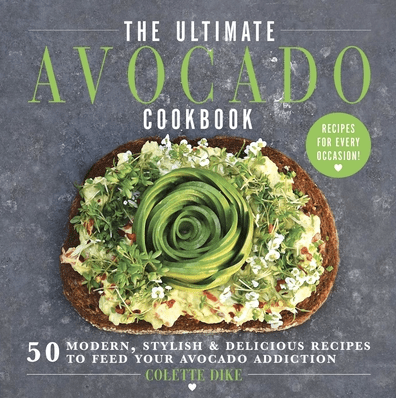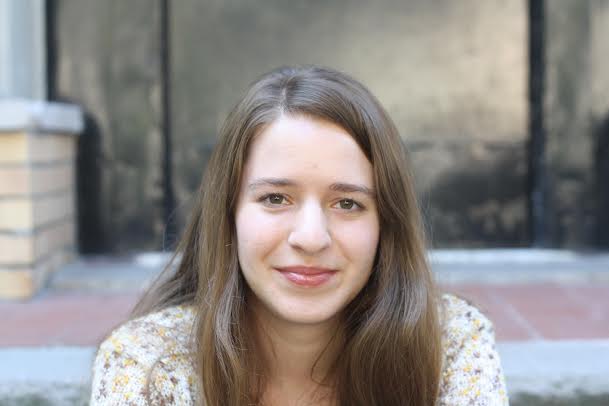When word got around in Philadelphia that truckloads of avocados were about to go bad two weeks ago, 10,000 people got in line. Some waited for hours at the giveaway dubbed “Avogeddon” to walk away with free 48-count cases of the green pitted fruit.
The event, held over two sunny afternoons at the city’s 300-plus-acre FDR Park, was organized by Sharing Excess, a nonprofit addressing food insecurity and food waste. Founder Even Ehlers, who donned an avocado suit and passed around a heart-decorated “Free Avocados!” sign during Avogeddon, describes the scene as “happy and peaceful.” By the end, 10 staff members and a handful of volunteers had distributed 444,672 avocados. Another 153,600 avocados went to local food banks.
The half million avocados came from the Philadelphia Wholesale Produce Market, one of the largest wholesalers in the US. Sharing Excess partnered with the market last year to rescue food there that would otherwise end up in a landfill.
“This was a big opportunity to take away the stigma around the distribution of free, surplus food — something that usually happens behind closed doors,” Ehlers says. “But this level of distribution is nothing new to us, this is just a drop in the bucket.”
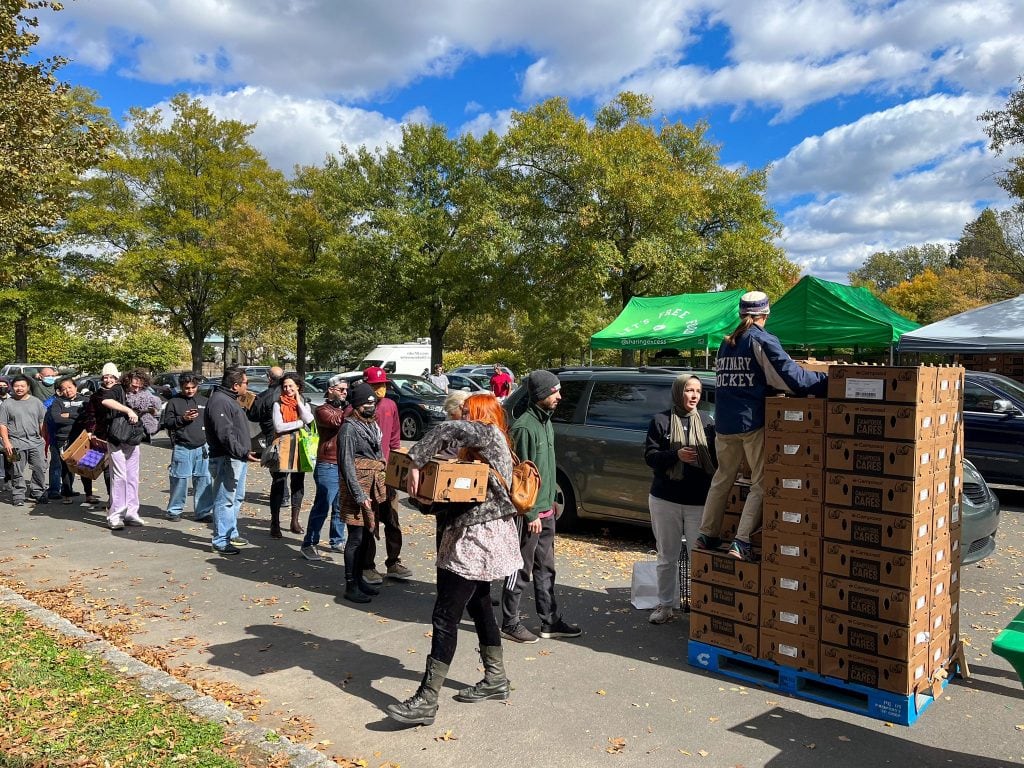
Roughly 40 percent of all food in America is wasted — that figure breaks down to 130 billion meals and more than $408 billion in food thrown away each year. Ehlers founded Sharing Excess in 2018 while attending Philadelphia’s Drexel University. At first, the organization focused on bridging the gap between businesses grappling with food excess and the city’s large hunger relief organizations. Restaurateurs and organizations could simply call and a Sharing Excess volunteer would shuttle their leftovers to a food bank.
Soon, Sharing Excess was renting warehouse space in West Philly so they could receive deliveries from major wholesalers and temporarily store food. In 2020, they participated in a new federal food assistance program responding to the pandemic. But as that relief started to dry up in 2021, Sharing Excess ramped up a search for other sources.
Alex Havertine, food sourcing director, called up Mark Smith, general manager of the Philadelphia Wholesale Produce Market. The refrigerated 700,000-square-foot market houses 18 different vendors who sell everything from onions and green peppers to pineapples in bulk to clients like grocery stores, restaurants and other food retailers. (The public can also shop at the market, as long as they buy by the carton.)
“One of his priorities was to get the food waste down … we reached out at an opportune time, when he was really thinking about solving this problem,” Ehlers recalls about the conversations with Havertine.
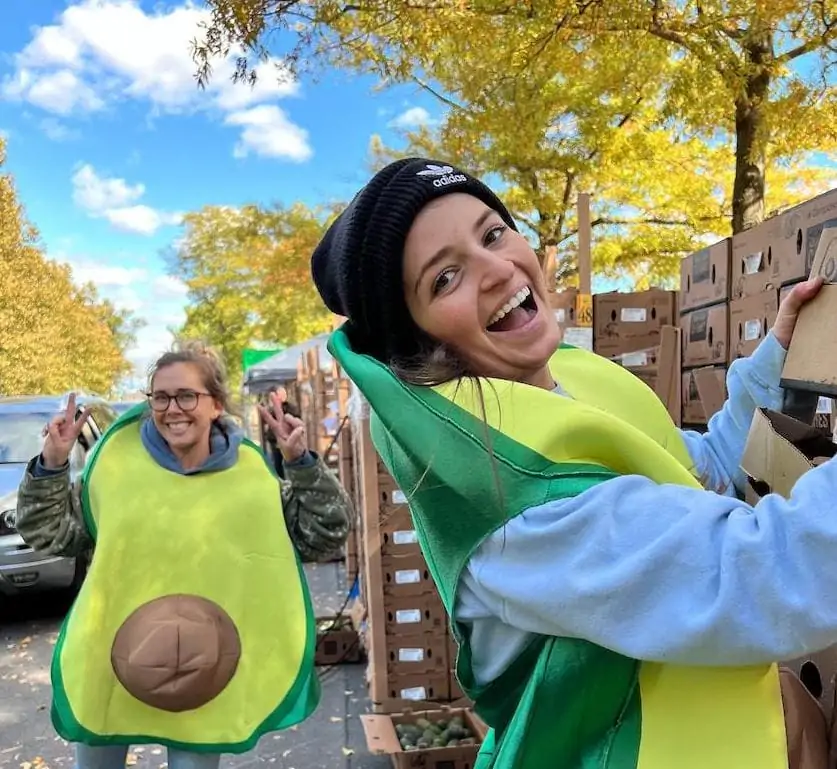
The resulting partnership built off Sharing Excess’ strength as a flexible, responsive intermediary. By July 2021, Sharing Excess was set up inside the market five days a week between 7 and 11 a.m., with a few plastic tables to collect food waste from all 18 vendors. Sharing Excess gives about 90 percent to food banks and other community organizations. It directly distributes the remaining 10 percent. Inedible food is given to Do Good, a company that turns food waste into chicken feed.
Large food banks and the wholesale market pay Sharing Excess for its go-between role. “We’ve proved our value to food businesses like the Wholesale Produce Market,” Ehlers notes. Each pallet sent to the market’s internal waste management system costs a vendor $80 — Sharing Excess instead takes it off their hands. In one year, they saved the wholesale market over $300,000 in waste costs, increased its waste diversion from 30 to 70 percent, and rescued over six million pounds of food.
For the major food banks, Sharing Excess’ value is in their labor of sorting through produce and bringing it to them, up to millions of pounds of food a year. (Sharing Excess doesn’t charge smaller community-based organizations.) “We probably pay Sharing Excess upwards of $100,000 a year,” the executive director of the Share Food Program, one of the largest food distributors in Philly, told the Philadelphia Inquirer. “But … we’re not then having to tie up our [loading] docks with product that’s not good, tie up our refrigerators with product that’s not good, then having to pay on the back end to get that composted. It saves us time. It saves us money.”
Sharing Excess’ regular presence at the market helped build trust with the different vendors. “We want [vendors] to know that this organization will be there every time they have donations, even if over 50 percent of the food is inedible,” says Ehlers.
All this led to what would go down in history as Avogeddon. A surplus of avocados in South America resulted in eight truckloads of avocados on the brink of going to waste. “For us, that quantity is not surprising,” Ehlers stresses. “We distribute that amount of food every week.”
What was abnormal was that the excess food was just avocados. Two truckloads went to food banks and six truckloads were unpacked over the two-day public distribution. “We just wanted to get it out, we didn’t know it would blow up like this,” says Ehlers. “Because of the type of food that it is, that it’s expensive, that there’s a meme with millennials and avocados, there was a perfect storm of attention.”
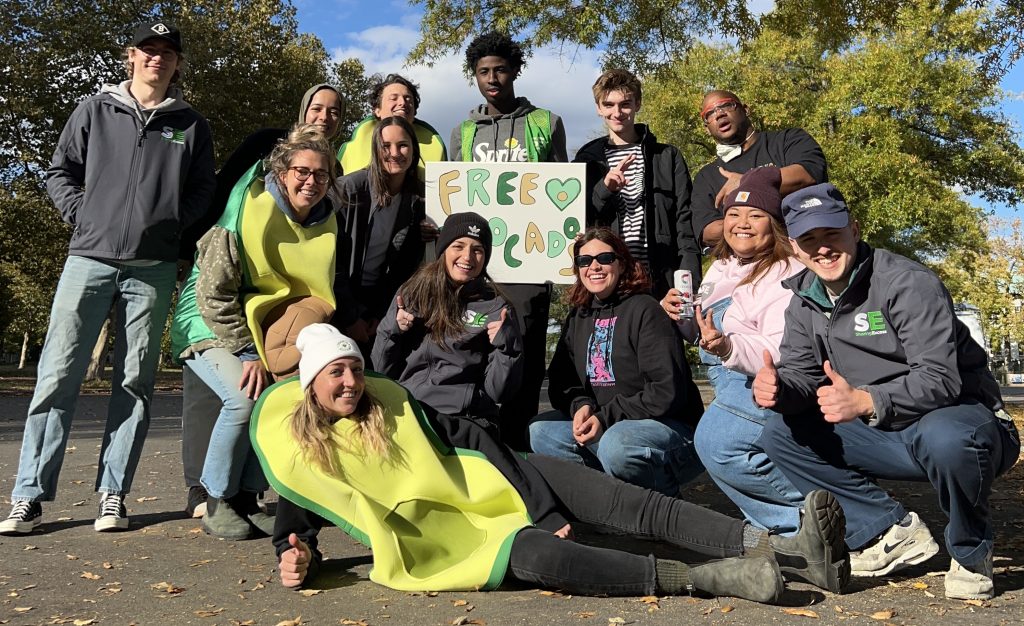
Food insecurity is also more and more prevalent. “High food price inflation, along with elevated costs for other basic needs, such as transportation and rent, have likely eroded food budgets in the last year,” the Urban Institute detailed this September. “In addition, some of the safety net responses that buffered food insecurity in 2021 are no longer in place.”
For the Sharing Excess team, it was an opportunity to bring a fun, community vibe to the issues of food waste and free food distribution. Some people came with their families; some were avocado fanatics; others had never tried an avocado in their lives. “People were talking about avocado toast, milkshakes, brownies, ice cream and guacamole of course,” Ehlers says.
Sharing Excess intends to expand. Ehlers believes the organization will be ready to pilot its wholesale distribution partnership model in a new city within three to six months.
Avogeddon’s success proves that a wholesale partnership, with public food giveaways, can be highly impactful and help change narratives around food waste. “It’s this low-barrier, high-appreciation model of holding a pop-up that looks like a farmers’ market, that interacts with the public and is not happening behind closed doors, and you just feel really good going to it,” says Ehlers.








